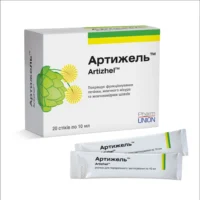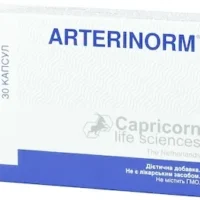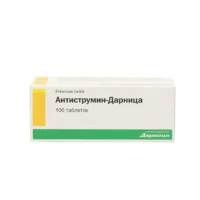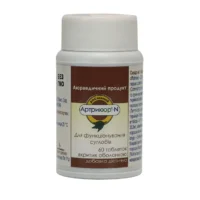Description
Apimilc (apilacum) Sublingual Tablets №30
Composition
- Active Ingredient: Apilacum (derived from bee venom)
- Lactose monohydrate
- Microcrystalline cellulose
- Magnesium stearate
Mechanism of Action
Bee venom, the main component of Apimilc tablets, possesses anti-inflammatory and immunomodulatory properties. It inhibits inflammatory pathways by modulating cytokine production and suppressing inflammatory mediators, contributing to the anti-inflammatory effects of the tablets.
Pharmacological Properties
Apimilc sublingual tablets have analgesic effects, reduce inflammation, and boost the immune system.
Indications for Use
Apimilc sublingual tablets are indicated for boosting the immune system, reducing inflammation, and relieving pain.
Contraindications
Do not use Apimilc sublingual tablets if you are allergic to bee products. Consult your healthcare provider before use if you are pregnant or breastfeeding.
Side Effects
Individual responses may vary. If you experience any adverse reactions, discontinue use and consult your healthcare provider.
Usage Instructions
Place 1 tablet under your tongue once a day. Allow it to dissolve completely without swallowing or chewing. Avoid eating or drinking for at least 10 minutes after taking the tablet.
Benefits Compared to Analogues
Apimilc tablets offer natural immune-boosting benefits and anti-inflammatory effects compared to other products.
Suitable Patient Groups
Apimilc tablets are suitable for adults and children over a certain age. Consult a healthcare provider for appropriate use in elderly patients.
Storage and Shelf Life
Store in a cool, dry place away from direct sunlight. Check the expiration date on the packaging and do not use after the specified date.
Packaging Description
Each package contains 30 sublingual tablets of Apimilc (apilacum).
Clinical Evidence and Proven Effectiveness
Studies have shown that bee venom therapy, as in Apimilc tablets, can significantly reduce disease activity scores and improve quality of life in patients with inflammatory conditions like rheumatoid arthritis. Research published in the Journal of Ethnopharmacology has demonstrated the analgesic effects of bee venom in inflammatory pain conditions.




